Greetings, my pawsome human minions.
Once again, this is Forrest Wisewhiskers, coming to you from comfort and sunshine with the information you so desire when it comes to cats and our mysterious ways. Today, I wish to bring you information from inside the cat world—some tidbits to furmiliarize yourself deeper with your furry overlords.
I’ve noticed humans have an unwritten code of interaction by which you act. Manners and rules for polite society, I believe Mom termed it. Well, we felines also have a code of behaviors for polite cat society. We don’t call them manners, but these instinctual behaviors that communicate intent between cats could indeed be considered just that.
You might have already noticed cats interact differently with each other than they do with humans. Yet, there are shared behaviors that translate well to feline/human manners.
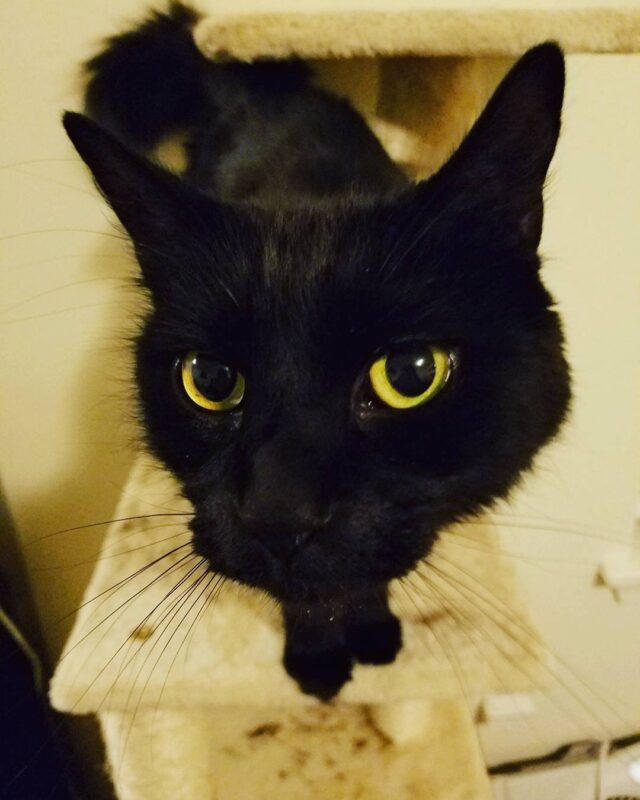
Take, for example, bunting or head-butting. Cats bump heads with their human as an act of affection. But did you know we also bump heads with each other in the same lovey manner as a sociable expression of care?
There you have it, your first lesson in the art of polite cat manners. Would you like more?
Of course, you would. And because you’re a good human, here’s a few more lessons in etiquette among cats.
How Cats Interact with Each Other: The Acts of Polite Feline Society
The nuances of feline society are vast, and I won’t say we are simple creatures, but you can learn our language and our manners with study. And the first thing to remember, cats use body language, vocalizations, and scent to communicate. Let’s look at an example of cordial cat manners from each of these three types of communication.
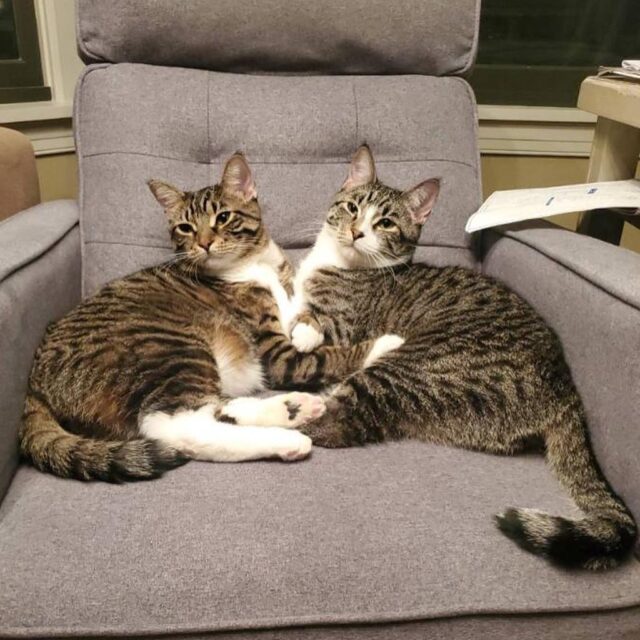
Eyeing A Friend: An Invitation Accepted or Declined Via Body Language
If a cat is open to another’s approach, you might see a calm blink pass between them. It’s a sign to have a seat so we might gaze at the wild world together.
Now, if one of the cats crouches low and tight, puffing up big with their ears back, then this is the polite sign for ‘no company, please.’ Less polite rebuffs may include dilated eyes, hissing, or swatting. Such overt signs of the need for solitude leave no room for misinterpretation.
Trill to Trill: Kind Exchanges Between Felines
Cats are very vocal, but not just in the ways of meow. We tend to reserve those for our conversations with you, but you’ll hear more subtle niceties sounded between cats. And one of the usual chitchats between cats involves the trill.
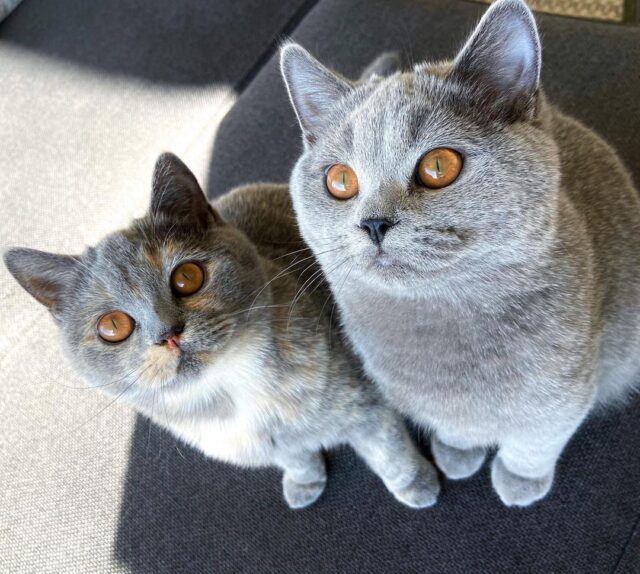
We learn this high-pitched roll of the voice early in life, our mothers using the noise as a signal to follow her. As a feline grows from babe to adult, the trill stays with us and we often use it as a respectful way to garner attention so we might say hello to another of our kind. You’ll notice a trill is used when kitties are in a pleasant mood, making it a pleasing and subtle sound of good manners compared to ruder attention requests like growling or hissing.
If you’d like to garner your cat’s attention, surprise her with your study of cat etiquette and try a polite trill. Purrhaps, she’ll reward your good manners with a head bump.
Sniffing of the Butt: Polite Hellos that Communicate Loads of Information
And now, what you really want to know. Why do cats sniff each other’s butts? Is this really good manners among cats, you ask? Yes, it really is.
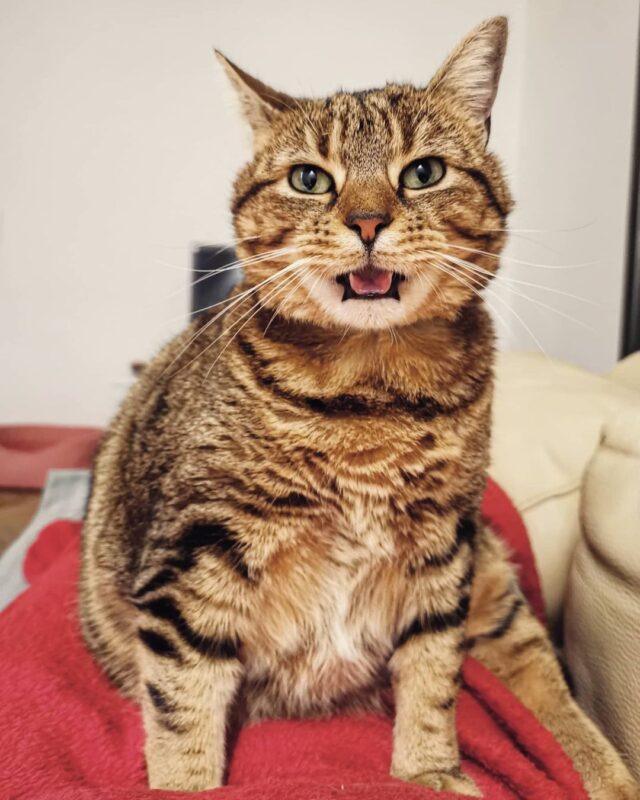
It’s a fact. Cats sniff each other’s rumps. While you find it repulsive, we find a quick nose in the butt a purrfectly decent greeting. One which also helps us know who this cat is and where they’ve been. For example, if my neighbor cat were to give my rear a whiff, she would be saying ‘cheerio’ while either recognizing or learning my scent. Then, as she went about her curious way, if she paused at the porch, she would know I consider the steps to be my space as the smell of my derriere and its pheromones wafts from their surface.
See? One quick sphincter sniff communicates so much and helps avoid impolite arguments over territory. Both simple and effective.
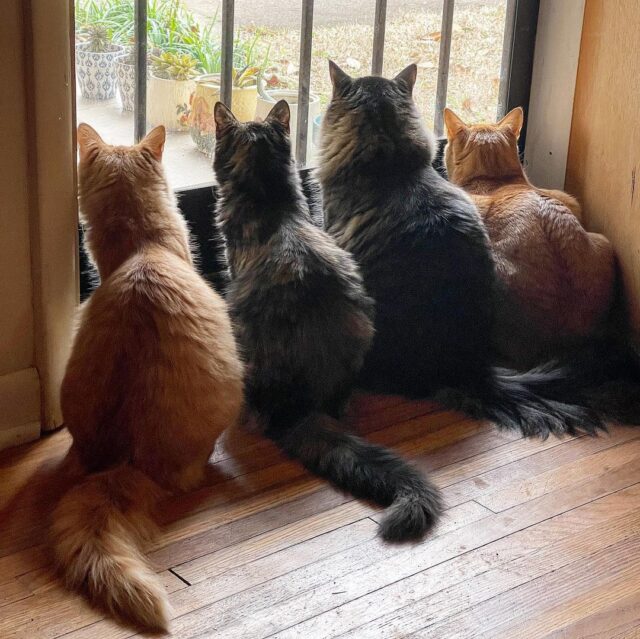
Of course, these are but three lessons from the full manual of cat etiquette, but once you’ve observed these genteel interactions, it gives you further insight into how cats communicate. As I said, if you wish to speak and act cat-efficiently, much study is needed. You may never be a cat, but at least you’ll know how to keep polite company.
Now, if you will excuse me, it seems the dinner hour has descended with the setting of the sun, and I am summoned. In well-mannered society, one must never be late for dinner.
With such thoughts in mind, avoid rude behavior and don’t forget to feed the cat!
